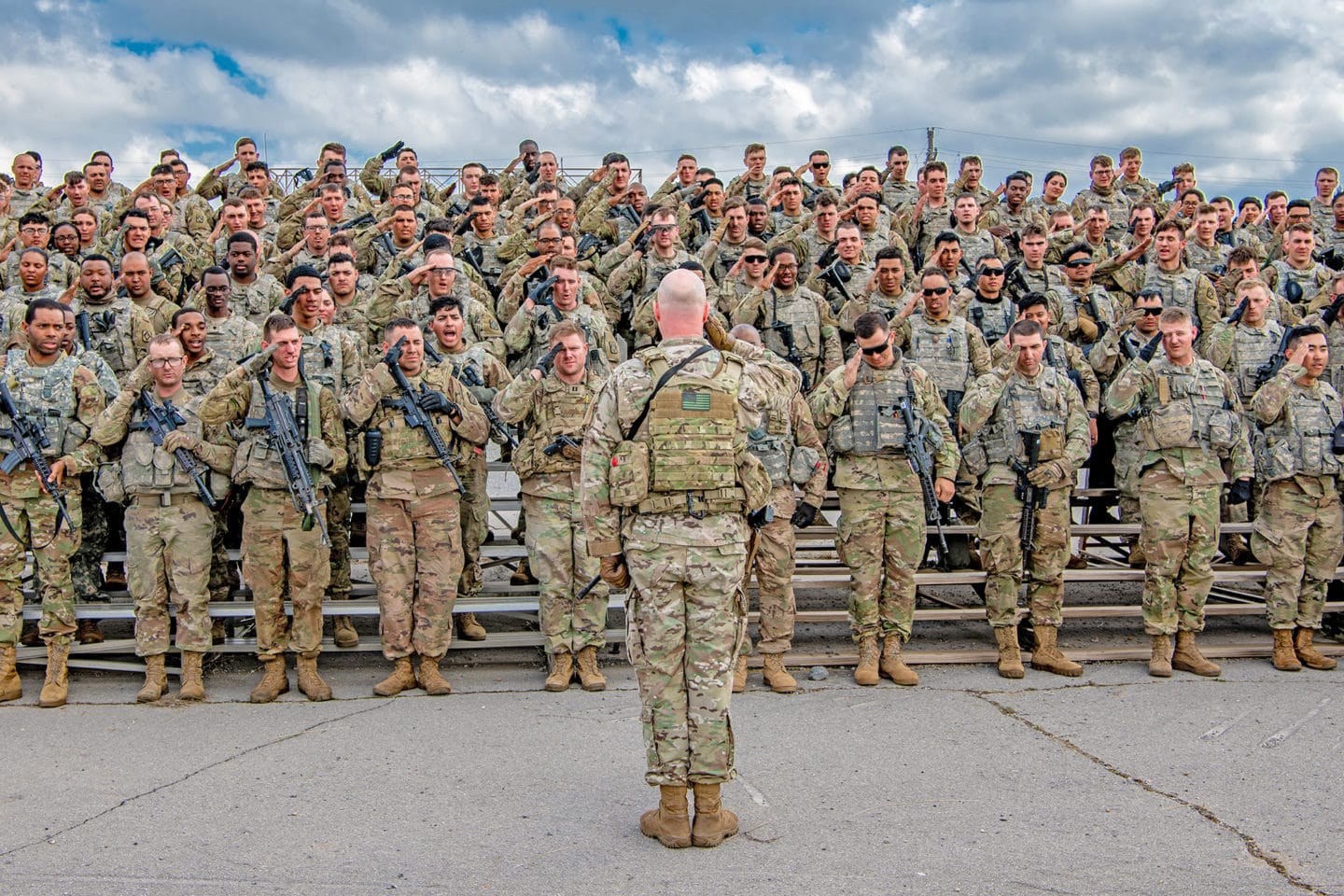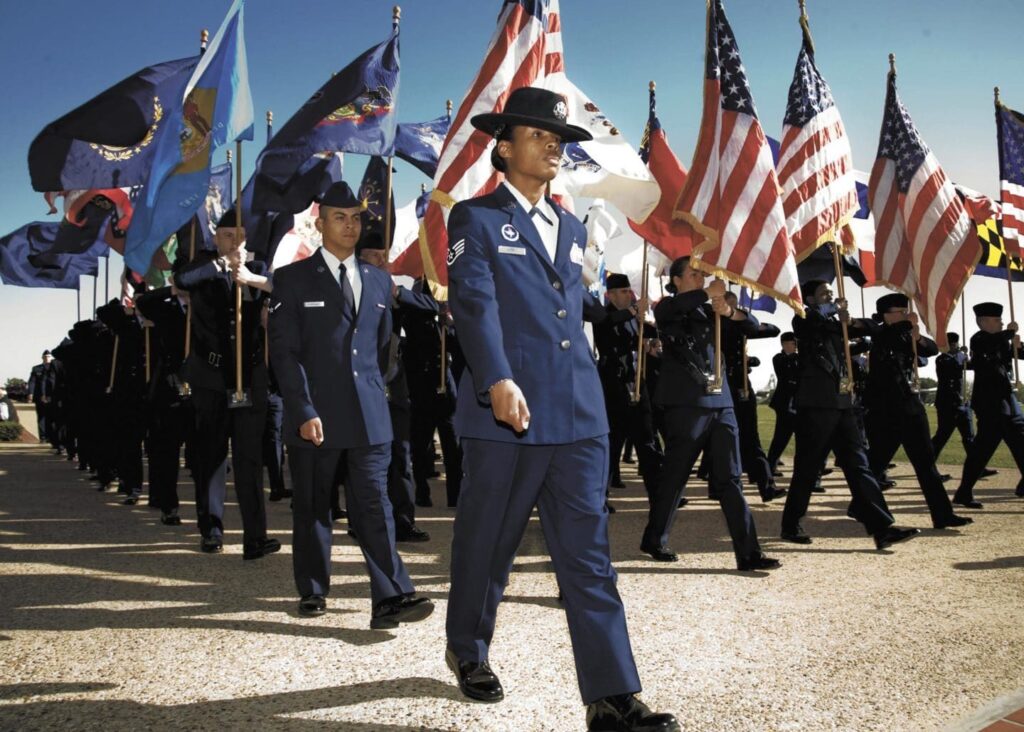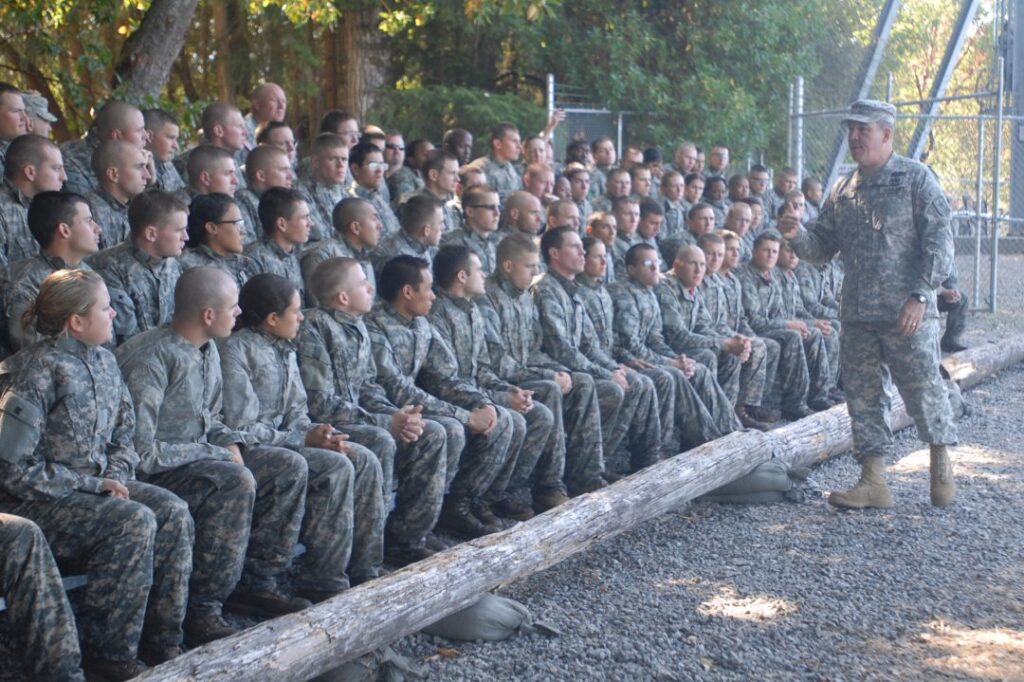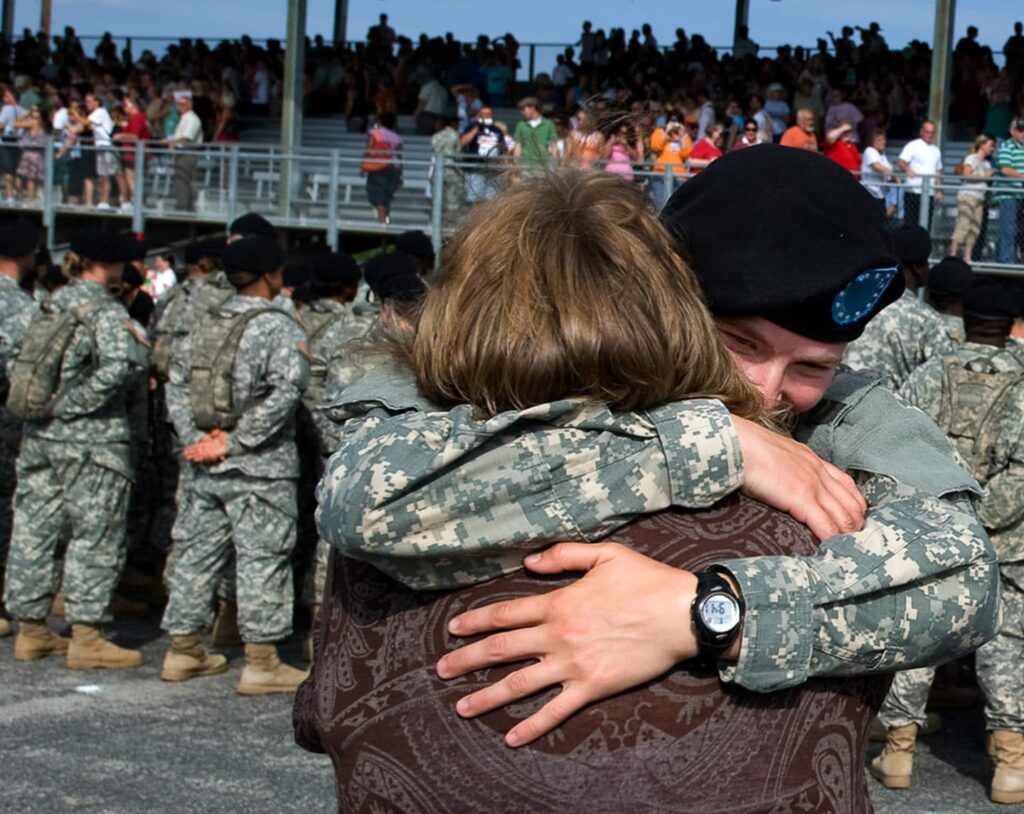150. That’s how many job opportunities the Army has for new recruits to consider.
While any position in the Army is honorable, some select jobs are especially unique opportunities that won’t be found elsewhere. No matter your interest, you can enlist or commission into fields like engineering, technology, mathematics, and more.
From being a drone pilot to working as a ranger, these seven options on the Army jobs list are guaranteed to keep you excited about going to work.
Below, we share some of the most interesting Army jobs out there:
1. Unmanned Aircraft Systems Operator
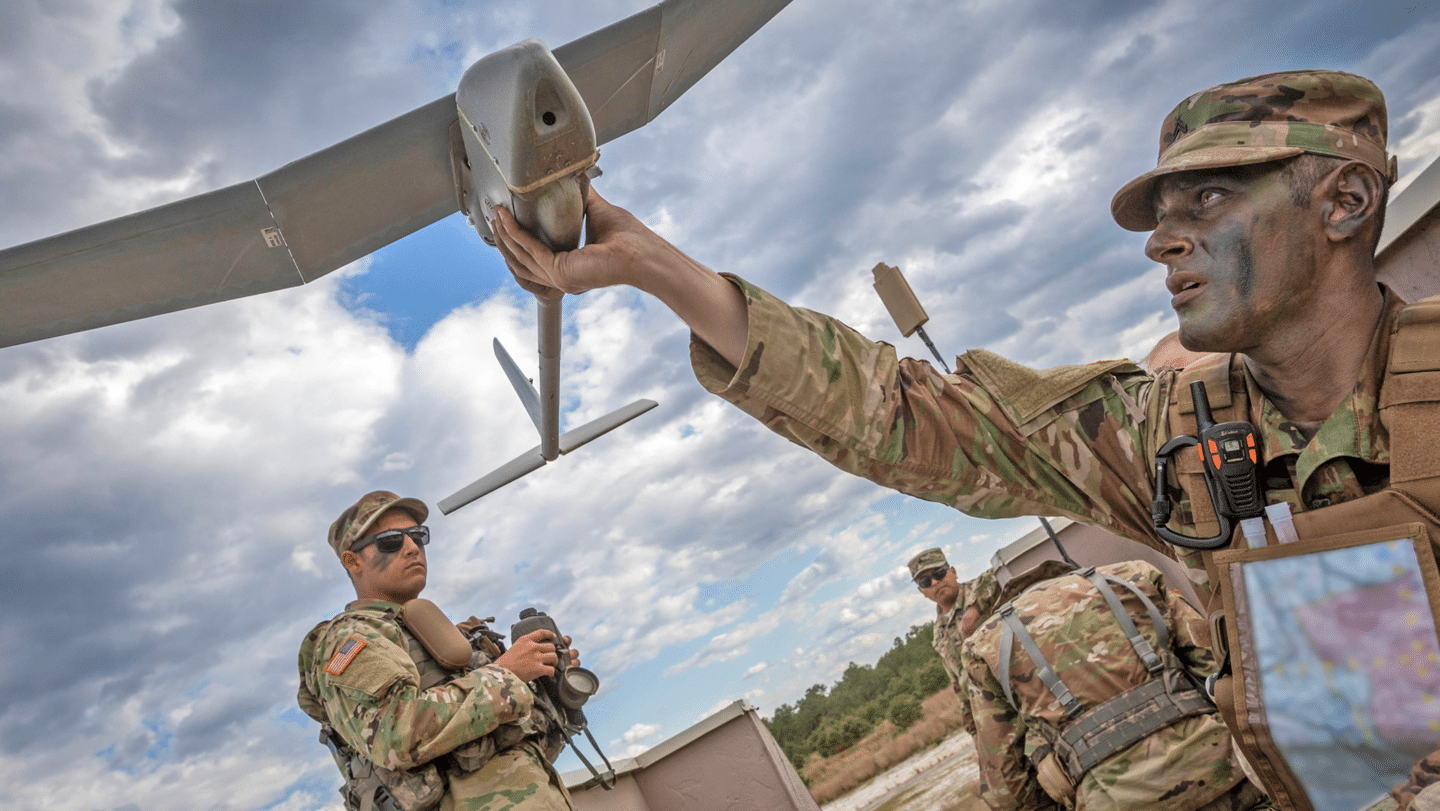
As the “Eye in the Sky” you’ll be an integral part of intelligence gathering for the U.S. military. Also known as drone operators, this role is open to enlisted active duty and National Guard members. After basic training, you’ll complete 5.5 months of technically intensive training at Fort Huachuca, Arizona while assigned to the 2nd Battalion, 13th Aviation Regiment.
What you’ll do:
- Train as an intelligence analyst as well as a remote pilot
- Conduct surveillance, air reconnaissance, intelligence, and targeting missions
- Prepare flight plans, maps, charts, and intelligence reports
- Analyze aerial photographs for intelligence missions
- Responsible for equipment maintenance, launch, and recovery
Special perks:
- Every day is different – If you like to expect the unexpected, this role is for you.
- Lucrative civilian career options – The CIA or other agencies may recruit you.
- Build upon your interests – Get paid to work with remote/radio control vehicles!
- Worldwide experience – Conduct missions around the world from your home base.
2. Army Ranger
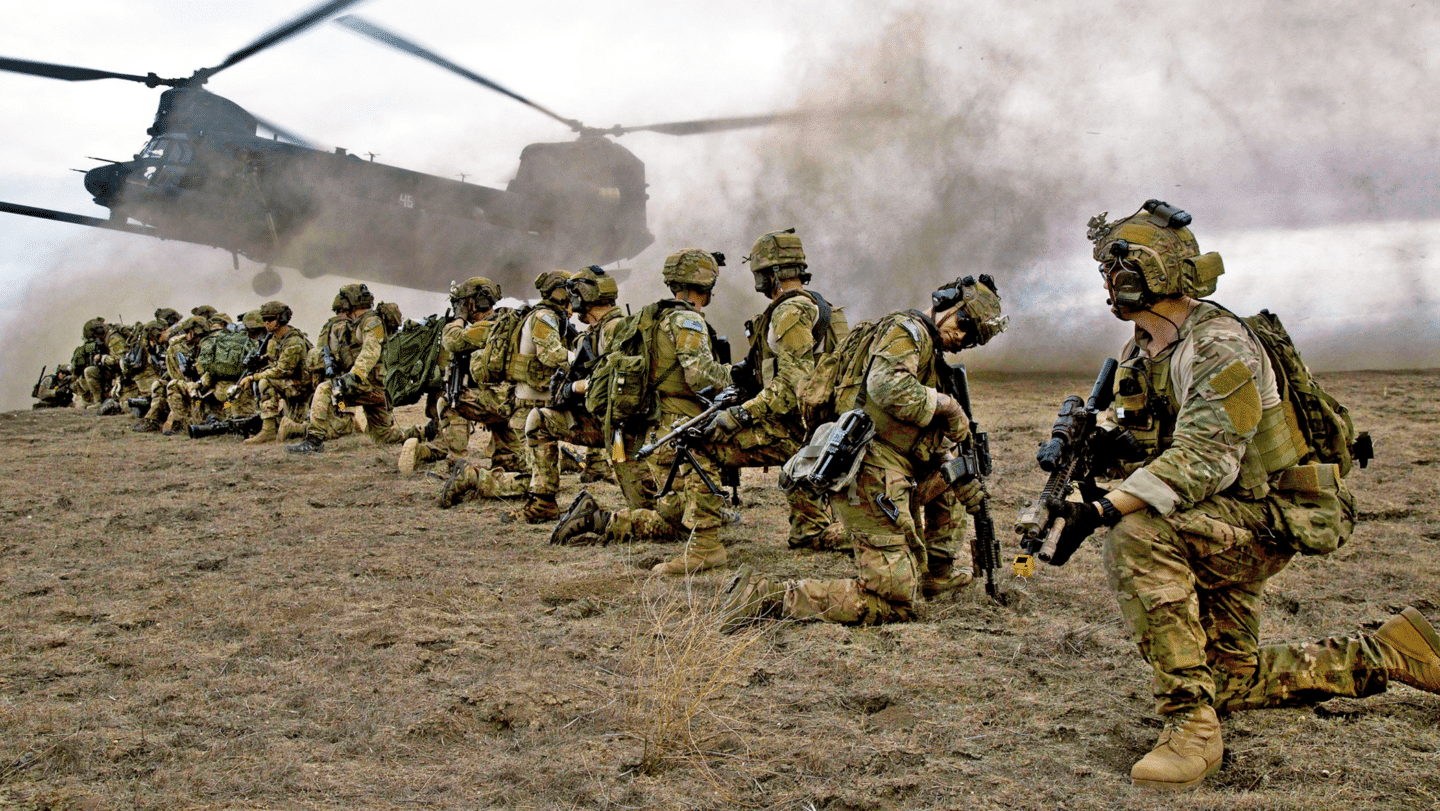
As a U.S. Army Ranger, you must be as mentally tough as you are physically. Rangers are responsible for conducting airborne and air assault operations, seizing specific terrains, and capturing or killing enemies. The training for this program takes part in three phases, including the “Benning,” “Mountain,” and “Florida” phases to acclimate the body to various terrains and challenges. The 75th Ranger Regiment is the largest special operations combat group in the Army.
What you’ll do:
- Many missions are classified and take place in foreign countries
- Specially trained to use deadly force in combat
- Missions are usually assigned on short notice — like 18 hours prior
- Often a part of complex, joint intelligence missions
Special perks:
- Specialized training – You won’t train for a job like this anywhere else.
- Faster-paced deployments – Adventure is part of your everyday job.
- Elite force member – Be a part of specialized, critical, sensitive missions.
- Tight-knit group – Your comrades are highly-trained individuals like yourself.
- Special pay – Receive special duty assignment pay and special skills pay.
3. Golden Knight
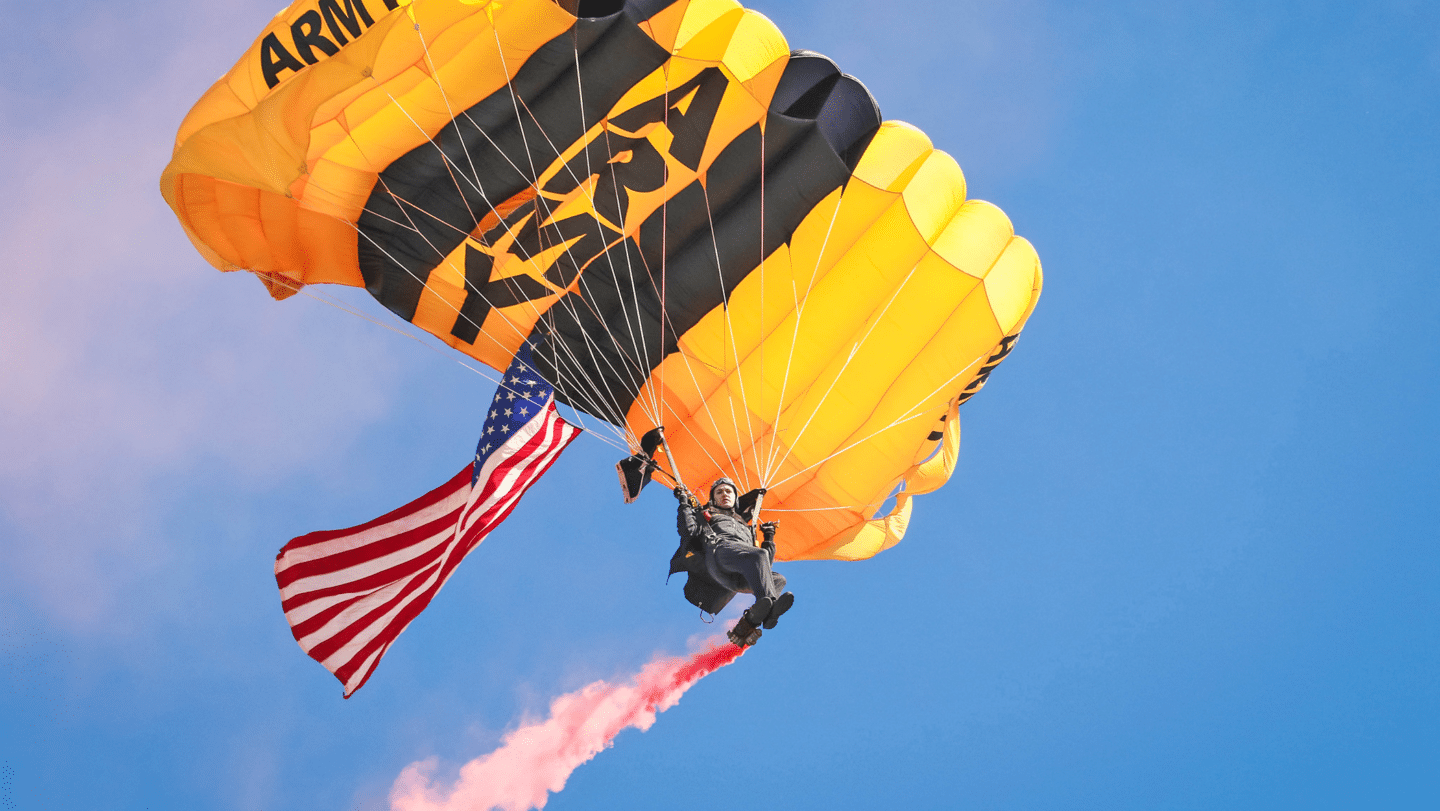
Not afraid of heights? Love thrill-seeking? Then being an Army Golden Knight might just be for you. In this job, you’ll jump out of perfectly good airplanes, cut your parachute — on purpose — and hit your target every time. Oh, and you have to try out for the job. Additionally, you must be static-line Airborne-qualified or be open to attending U.S. Army Airborne School. You’ll also be temporarily assigned for most of the year — 120 days to be exact.
What you’ll do:
The Golden Knights have 5 sub-teams including the demo, competition, aviation, tandem, and headquarters teams. Depending on what team you’re on will depend on your job duties. Here’s an idea of what each does:
- Travel and perform 65 aerial demonstrations across North America
- Demonstration teams perform at a variety of events around the country
- Competition teams participate in national and international events
- Tandem team takes celebrities, media, and VIPs on tandem parachute jumps
- Aviation and ground crew take care of aircraft
- Organized individuals run the logistics as part of the headquarters teams
Special perks:
- Traveling opportunities – With multiple aerial demos, you get to travel a lot.
- Non-traditional job – How many people get to jump out of planes for work?
- Florida visits- For 60 days each year, you’ll train in the Sunshine State.
4. Helicopter pilot
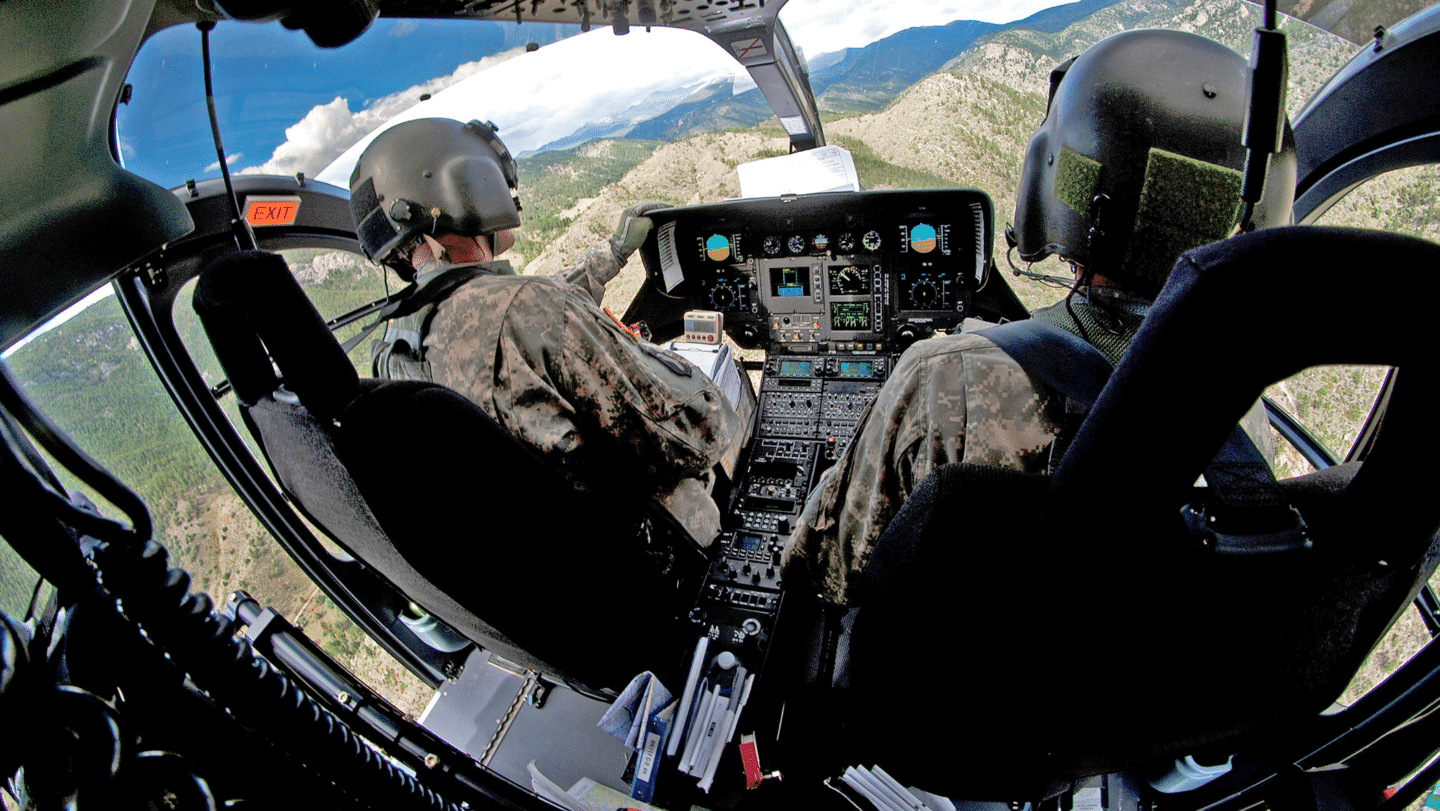
This position of an aviation officer — AKA helicopter pilot — is a coveted one. Enlisted individuals can’t qualify for this role, but it’s open to Army Reserve and National Guard members along with active-duty officers. Daily, you’ll get to fly aircraft like UH-72 Lakota, MH-6 Little Bird, and UH-60 Black Hawk to deliver troops and supplies. From teaching to aviation coordinating, your training preps you to take to the skies.
What you’ll do:
- Fly helicopters regularly
- Support infantry in a variety of ways
- Perform combat maneuvers
- Determine enemy location
- Support troop and equipment transportation
- Assist with evacuation missions
- Active role in long-range target engagement
Special perks:
- Amazing views – You’ll get to see the world from a bird’s eye view.
- Big bonuses – Receive up to $40,000 in cash bonuses.
- Huge pay-off later- Pilots can transition to a highly-paid civilian job.
- Save lives – Support infantry to do their jobs safely and successfully.
5. Explosive Ordnance Disposal Specialist (EOD)
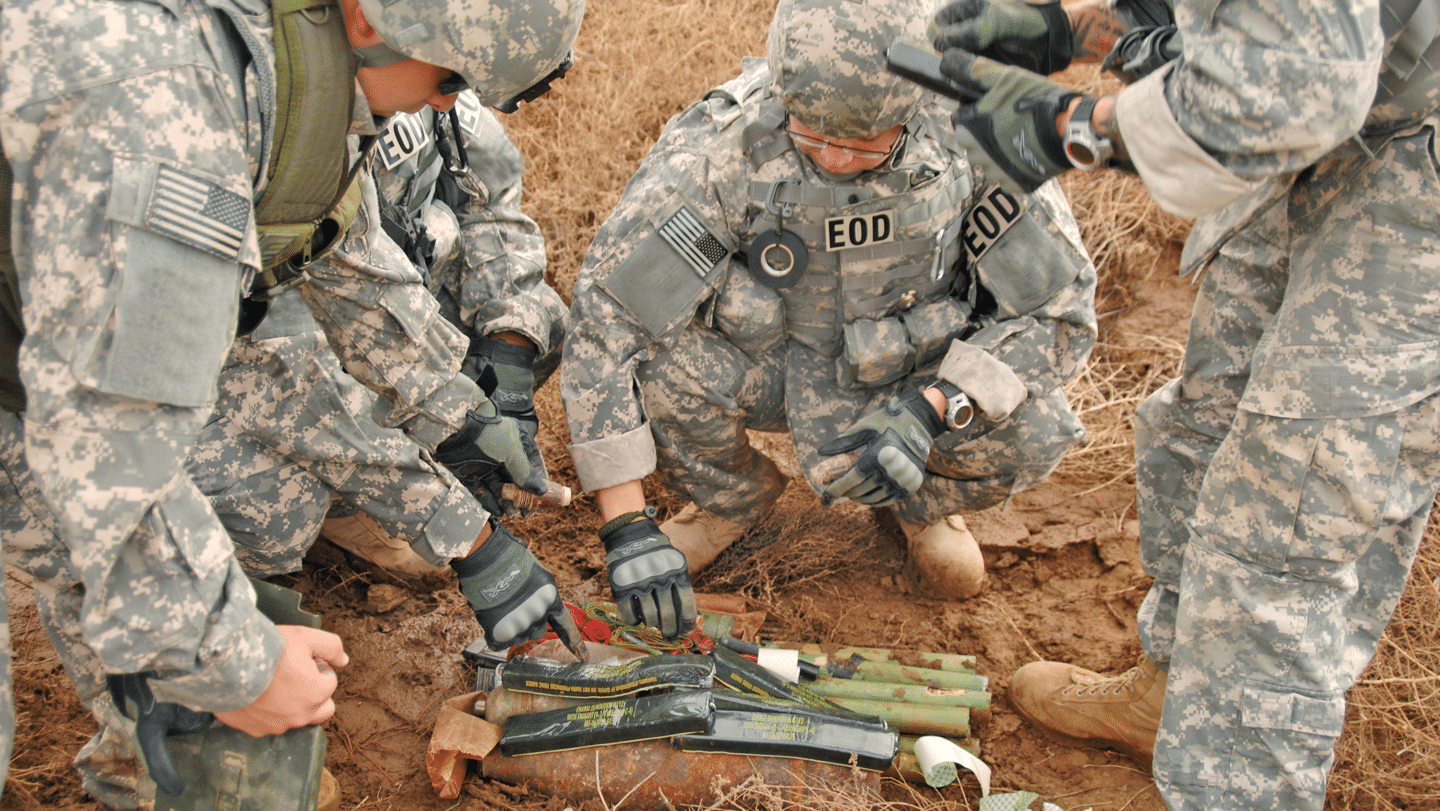
If you can keep calm in any situation — and you scored high on your ASVAB — check out work as an EOD. These highly-trained specialists handle and dispose of unexploded ordnance, including IEDs, chemical, biological, or nuclear weapons of mass destruction. It takes a lot of patience and a lot of training — you’ll spend 10 weeks in basic combat training and 37 weeks at Fort Lee.
What you’ll do:
- Responsible for gathering ordnance intelligence for VIP missions
- Prepare and maintain tools and equipment
- Maintain Army vehicles
- Dispose of hazardous materials
- Set-up and manage emergency containment and decontamination units
- May work with robots in the field
Special perks:
- Work with cool tech – Get paid to play with robots.
- Special pay – Receive extra funding for this work.
- Personal satisfaction – Save lives by detonating bombs.
- Transferable skills – Later civilian roles may include bomb-disposal expert, gunsmith, health and safety specialist, or even a government career.
6. Army Veterinarian
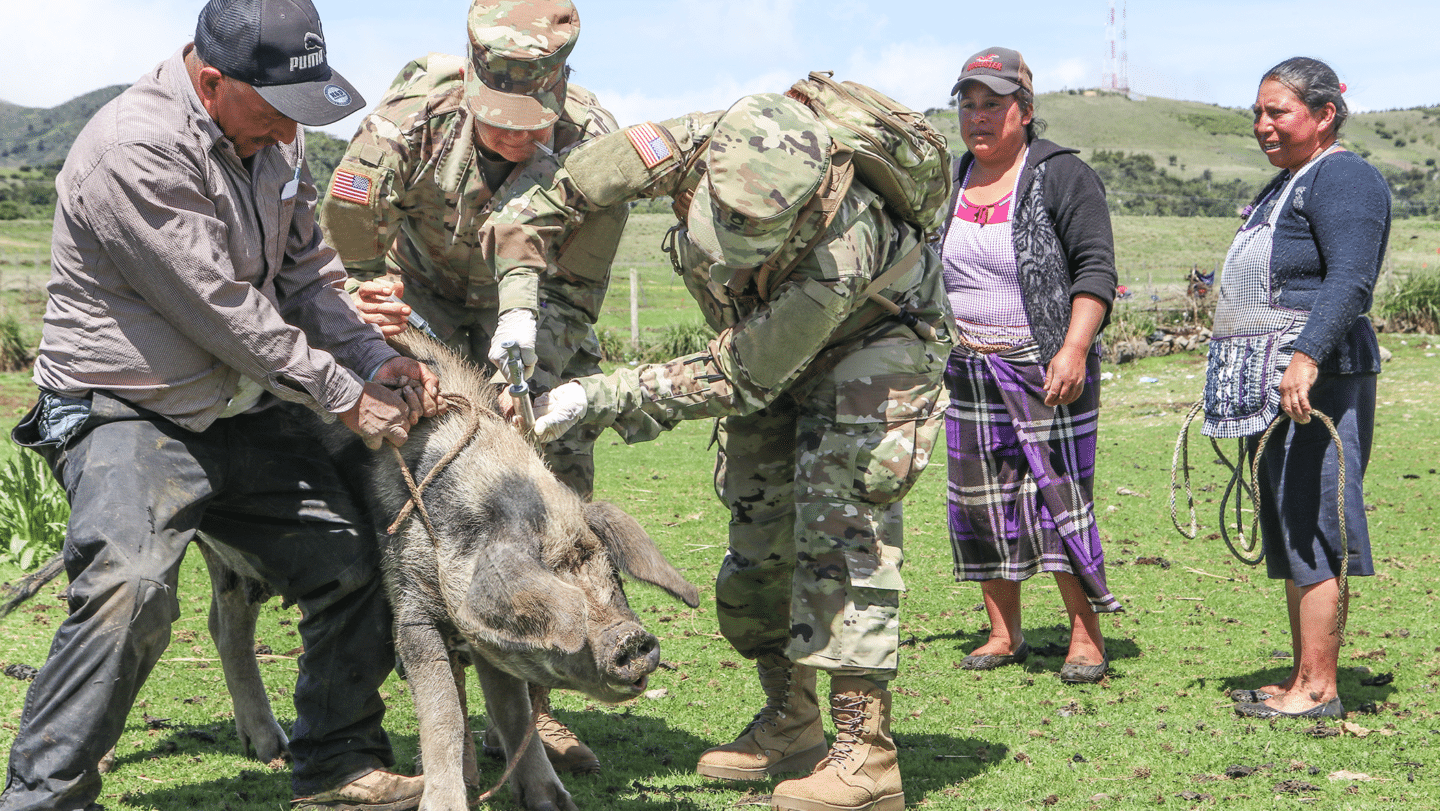
If you adore animals, this is the perfect job to serve your country and fulfill your passion to help animals. Army veterinarians can go on humanitarian missions across the globe, stay stateside to take care of military families’ pets, or work in labs. If you’re still in school, you may be eligible for the U.S. Army’s Health Professions Scholarship program that pays for your education. Active duty and Reservists may also be eligible to serve as veterinarians in the Veterinary Corps.
What you’ll do:
- Focus on animal medicine including diagnostics, surgery, etc.
- Work in a variety of settings including labs and stateside vet clinics
- As an officer, you’ll treat military service animals as well as pets
- May conduct research work in a lab
- Teach at service schools and train other personnel
- Go on humanitarian missions
Special perks:
- Help animals – Keep animals healthy daily with your knowledge.
- Special pay – Receive up to $75,000 over 3 years.
- Annual bonuses – Potentially eligible for $2,000 to $5,000 annually.
- Goodbye loans – Find scholarships and student loan forgiveness in this role.
- Lucrative jobs await – Civilian veterinarian positions pay well.
7. Sniper
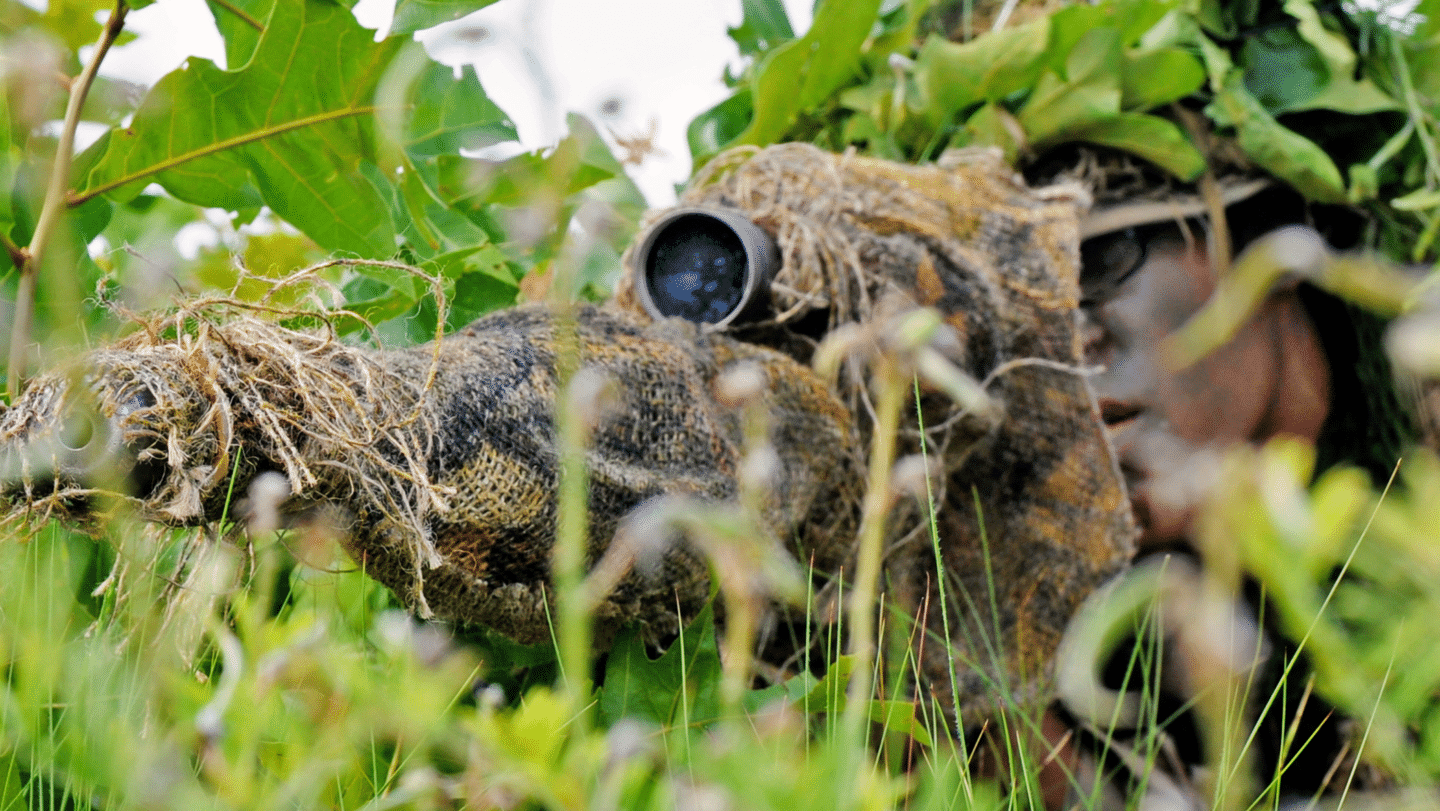
Snipers are among the most highly-trained Army soldiers. If you thrive on accuracy and enjoy going to the local shooting range to sharpen your skills, sniper work may be for you. This role is for only the most mentally strong and resilient individuals. To prepare as a sniper candidate, you attend the seven-week U.S. Army Sniper School at Fort Benning in Georgia. Hundreds of soldiers enter, but very few leave the school as experienced and trained snipers because the level of accuracy required isn’t a skill everyone can learn. You must be more than a “good shot” and receive special training in concealment and camouflage, too.
What you’ll do:
- Accurately hit enemy targets from concealed locations or far distances
- Become a trained stalker in order to locate and estimate target range
- Often work alone in uncomfortable, dangerous situations
- Learn the art of patience and stillness for camouflage purposes
- Support infantry and special missions, often overseas
Special perks:
- Special pay – For missions away, you may receive special pay.
- Critical role – May single-handedly impact the course of battle.
- Specialized training – Not everyone can be a sniper.
- Build resilience – Missions will hone accuracy not just in shooting but in life.
- Future job outlook is bright – Easily transfer to a civilian job in law enforcement.
Choose the Job That Fits Your Skills
When you select an Army career, you’re becoming a part of an elite group of individuals dedicated to service and commitment. No matter your job, your role plays a critical part of the Army’s success.
Even if none of the above positions interests you, there are plenty of options to choose from on the very long Army jobs list.
Career or short-term, your training in the Army will offer unique hands-on training opportunities that start from your first day on the job. Joining the Army shouldn’t be a light decision, so be sure you’ve talked to a recruiter a few times as well as active-duty members prior to committing. Take a good look at your skill set and interests, too.
There’s a career out there for everyone. Are you ready to start yours in the Army?
What career from this Army jobs list sounds most interesting to you? Let us know in the comments below!
